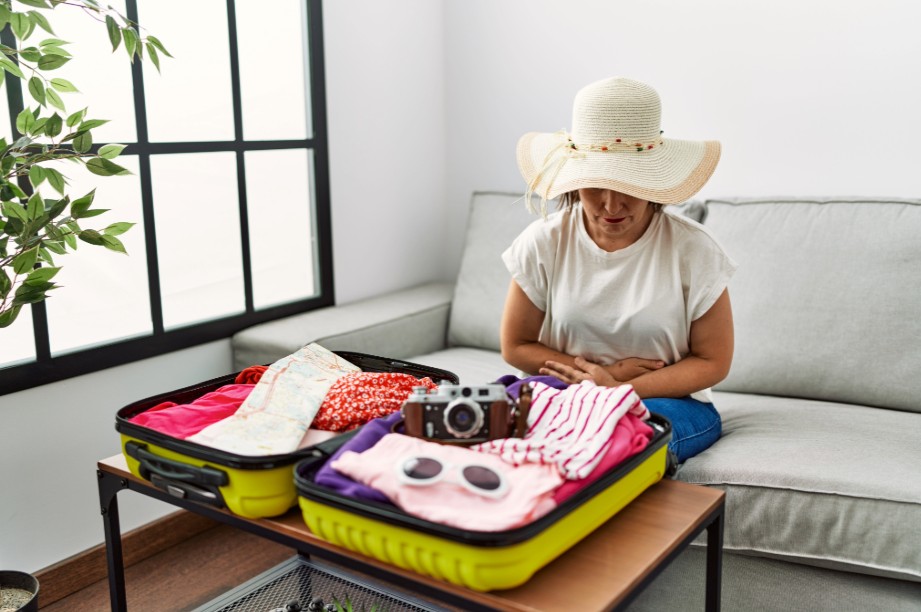
Travel can be fun, but for those who take prescription medication, over-the-counter medication or injectable medication, planning is key. If you’re taking a short domestic flight or traveling abroad, knowing how to pack, store and transport your medication can prevent disruptions to your health and a smooth journey.
It’s also important to understand international regulations regarding certain medications, as some countries may have restrictions or require specific documentation.
Plan Ahead for a Smooth Journey
One of the most important steps in traveling with medication is to make sure you have enough medicine for the duration of your trip—plus extra in case of unexpected delays. Running out of a necessary prescription while away from home can be stressful and getting a refill in a foreign country may be difficult, especially if you are in a country where medical regulations and pharmacy availability are different.
Always keep your medication in its original prescription container as this will avoid any issues during the screening process at security checkpoints. If your medication is temperature sensitive, such as insulin or liquid form medication, an insulated medication travel case is recommended to keep it effective.
Proper documentation, such as a doctor’s note or a copy of your prescription, is especially important if you are traveling with controlled substances or injectable medication. Having this documentation with you can prevent any misunderstanding or issues at security checkpoints or customs when traveling abroad.
Another thing to consider is how to pack your medication. It’s recommended to carry them in your carry-on bag rather than checked luggage to prevent loss or exposure to extreme temperatures. Checked luggage is often subject to drastic temperature changes which can compromise some medications. If you’re traveling for an extended period, talk to your doctor about getting a longer supply of your medication so you have enough to last throughout your trip.

Airport Security, TSA Regulations, and Proper Documentation
When traveling, understanding airport security procedures can help reduce stress. The Transportation Security Administration (TSA) allows passengers to carry medication, including liquid-form medication over 3.4 ounces in their carry-on luggage as long as it’s declared during the screening process.
Medication does not need to be in a quart-sized bag like other liquids and medical accessories like syringes, ice packs and pill organizers are allowed but may be subject to additional screening. However, some medication, especially controlled substances may require additional verification so it’s always best to check TSA guidelines before traveling.
If you’re traveling with birth control or hormone therapy, keep them in their original packaging with clear labels to avoid any issues. It’s also a good idea to research the medication regulations of your destination country as some countries have strict rules on certain medication including painkillers, ADHD medication and anxiety medication.
Ensure that both prescription and over-the-counter medications are legal and accessible in the destination country. A patient advocate can help ensure you have the right documentation and understanding of these regulations before you travel.
What to Do If You Lose Your Medication While Traveling
Losing medication while traveling can be a major hassle but being prepared can help you address the situation quickly. If you find yourself without your prescription, contacting a local pharmacy is usually the first step in getting a replacement. Some pharmacies may require a doctor’s note or prescription copy so having a digital or paper copy of your prescription can be helpful.
In some cases, your doctor can call in a prescription to a pharmacy in your destination country but availability of your specific medication may vary. Also check with your health insurance provider before traveling to see if your policy covers prescription refills abroad. If your medication is stolen, filing a police report can support your claim for a replacement and may be required by some insurance companies.

Managing Prescription Medications Abroad
Traveling abroad with prescription medications can be challenging, but with proper planning and preparation, you can ensure a safe and healthy trip. Here are some tips to help you manage your prescription medications while traveling abroad:
- Research the medication laws and regulations of your destination country before you leave. Some countries have strict laws regarding controlled substances, so it’s essential to check if your medication is permitted.
- Pack enough medication for the duration of your trip, plus a little extra in case of unexpected delays or changes in your itinerary. Be sure to check with your airline for any restrictions on carrying medications.
- Bring a copy of your prescription and a letter from your doctor explaining your medical condition and the medication you are taking. This can help facilitate the screening process and ensure you receive the medical attention you need if you encounter any issues.
- If you have a medical condition that requires regular medication, consider packing a small supply of emergency medication, such as an EpiPen or inhaler, in case of an unexpected attack.
- Be aware of the local pharmacy options and availability of your medication in your destination country. You may need to visit a local pharmacy to refill your prescription or obtain a new one if you run out of medication.
- Don’t forget to take your medication as prescribed, even while traveling. Set reminders on your phone or ask a travel companion to remind you to take your medication at the same time each day.
Have a safe and healthy trip while traveling with prescription medications. Prioritize your health and take the necessary precautions to manage your medications while abroad.
Traveling with Prescription Medications Tips
To help you travel smoothly with your medications, consider these:
- Pack smart: Always keep your medications in their original containers and in your carry-on bag.
- Bring extra: Bring additional doses in case of travel delays.
- Store properly: Protect your medication from extreme temperatures by using insulated cases or keeping them close to your body in cold climates.
- Check regulations: Research medication rules for your destination country to avoid issues at customs.
- Keep documentation: Carry copies of prescriptions and doctor’s notes especially for controlled substances.
How a Patient Advocate Can Help
Traveling with medication can be overwhelming but a Board-Certified Patient Advocate like Stevie can make the process easier. From researching medication regulations in your destination country to ensuring you have the right documentation, Stevie can help you feel prepared.
If you experience any medication-related issues while traveling, having an advocate on your side can give you peace of mind. Whether you need help finding a local pharmacy, understanding insurance coverage or managing storage issues, a patient advocate can be a huge help.
Travel with Ease
If you’re traveling for a short trip or for an extended stay, take the time to organize your medication for a stress-free journey. By being proactive in packing your prescriptions, understanding security regulations and considering storage conditions, you can travel with confidence and stay healthy.
If you or a loved one need help preparing for travel with medications, Seawind Health Advocacy Group can assist. Stevie will guide you on medication management and healthcare navigation so you can focus on your trip and your health. Contact Seawind Health Advocacy Group today to learn more about how we can support your travel health needs.



